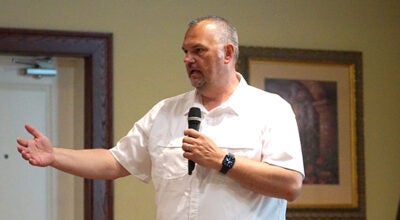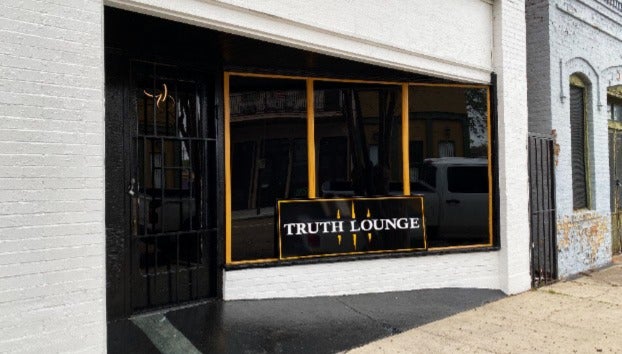FBI: No criminal conduct in Square on Carter project
Published 12:04 am Thursday, February 4, 2016
VIDALIA — An FBI agent who reviewed Vidalia’s Square on Carter project concluded he could find no criminal conduct that was prosecutable.
But he also wrote in an email to the bond commission that a more reasonable valuation of one of the tracts of land for the proposal would have been for between $1.28 million and $1.8 million less than the land was initially appraised.
The Square on Carter project is a proposal for the city — through the Carter Street No. 1 Development District — to purchase and improve 65 acres of land near the western end of town in an effort to woo developers. The Carter Street No. 1 Development District is a special tax district within Vidalia created in part for such projects.
The city has been pursuing some form of the plan since February 2015.
The FBI first began looking into the project in August 2015 after public allegations of real estate conspiracy were made against the project. The allegations were connected to one of the two plots of land identified as the site for the Square, a 32.72-acre plot in which Vidalia Mayor Hyram Copeland once held an ownership stake.
Copeland had sold his share in the property nearly five years prior to the proposal’s unveiling, but one of his former business partners still owned the property. The allegations, leveled by former Secretary of State Al Ater, included that the appraised value for the property had been inflated.
Copeland has maintained he never had any contact with the appraisers.
After the FBI contacted the bond commission requesting records connected with the project, the bond commission — which approves municipal debt offerings — tabled the decision to vote up or down on the proposal until the matter was resolved.
In an email to Louisiana Bond Commission Director Lela Folse dated Tuesday, FBI Special Agent Jeffrey A. Goins wrote he had reviewed the information with the Assistant U.S. Attorney and the attorney agreed, “there is not currently a prosecutable criminal violation.”
“Accordingly, I am recommending the FBI close the matter,” Goins wrote.
Vidalia Mayor Hyram Copeland said the ultimate result of the FBI’s records request was not surprising to him or the city administration.
“We have known all along that we had taken the proper, and legal, steps in pursuing this project; however, we are happy to have the results documented to give everyone assurance that this administration works within the means of the law at the local, state and federal level,” he said.
The agent noted, however, that in the original documents provided to the bond commission, the appraised value of the BCHT tract — the land Copeland once owned — was for $3,775,000. After two subsequent appraisals, a value of between $1,936,000 and $2.5 million was determined.
The second piece of property associated with the project — known as the Scroggins tract — was initially valued at $741,000. After the two other appraisals, its value was placed at a range of $680,000 to $741,000.
“Based on all the information I have seen, these are much more reasonable valuations that are supported by the true costs of developing the properties for the state purpose of Square on Carter,” Goins wrote.
Though in his letter Goins said the subsequent appraisals happened “after my interest in the matter became known to the public.” Concordia Economic Development Director Heather Malone said the agent was mistaken in his timeline.
The second and third appraisal came after a motion Alderman Ricky Knapp made during a June 9 meeting of the Vidalia Board of Aldermen that would require three appraisals before completing the project, Malone said. The motion was passed 4-1, with Alderman Jon Betts voting against it.
“The second appraiser, Gary Robinson, was engaged in June of 2015,” Malone said. “Due to our location, we had a difficult time finding a third appraiser who was familiar with our market area; therefore, it was agreed to have a third party appraisal review completed for the two appraisals. The reviewer, Wayne Pugh, was engaged Aug. 7.”
The bond commission as a whole first discussed the FBI request in executive session Aug. 20.
“The threat by Ater to have this project investigated was in early August 2015, again, well after the second appraisal was initiated,” Malone said. “Therefore, I’d like it to be made known that the additional appraisals were not a result of knowing the FBI was involved.”
Though the project received the endorsement of several municipal and economic development groups, the Louisiana Attorney General’s Office issued in December an official opinion that the project falls outside the guidelines the state sets for economic development bond issues.
The opinion said the information the city has provided the bond commission does not allow it to determine if economic development or growth would be achieved with the project, but that it “would essentially result in the District or Town acting as commercial real estate developers and would put the District or Town in direct competition with private real estate development companies.”
City officials have said they plan to seek a second opinion from the new attorney general, who took office two weeks after the opinion was issued.
The December opinion — which is not legally binding — was foreshadowed by a much more brief memo from the attorney general’s office to the bond commission earlier in the year.
The Square on Carter proposal is part of a wider master plan for the city that included the adoption of new development codes. Third-party consultants with the Orion Group developed the plan after a series of public meetings in 2014.





